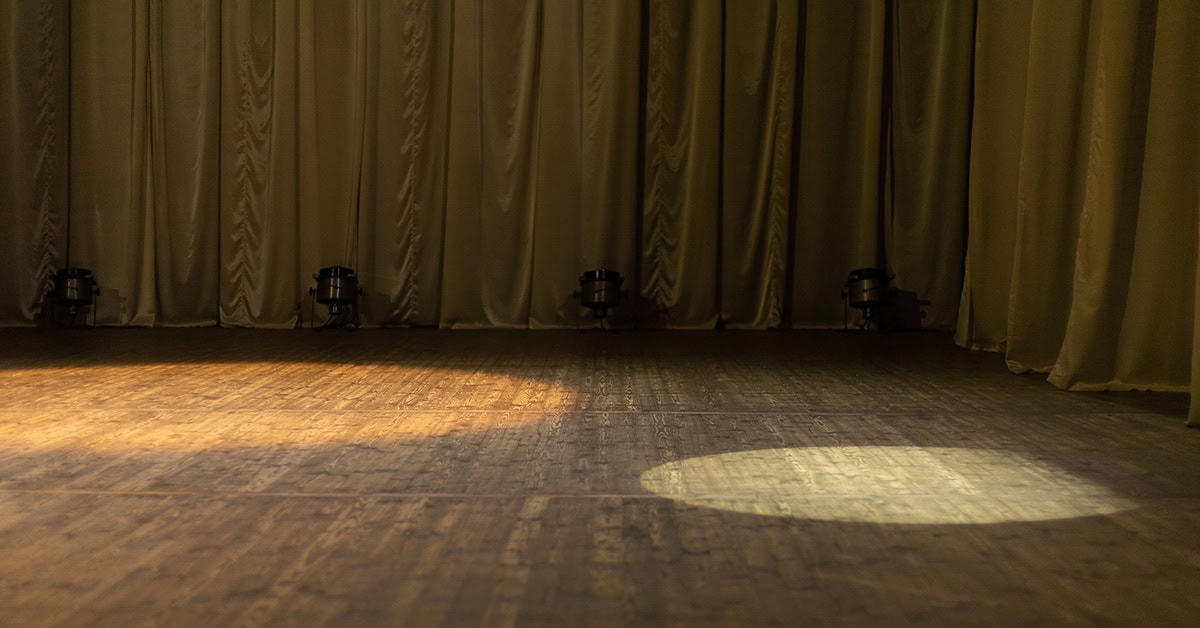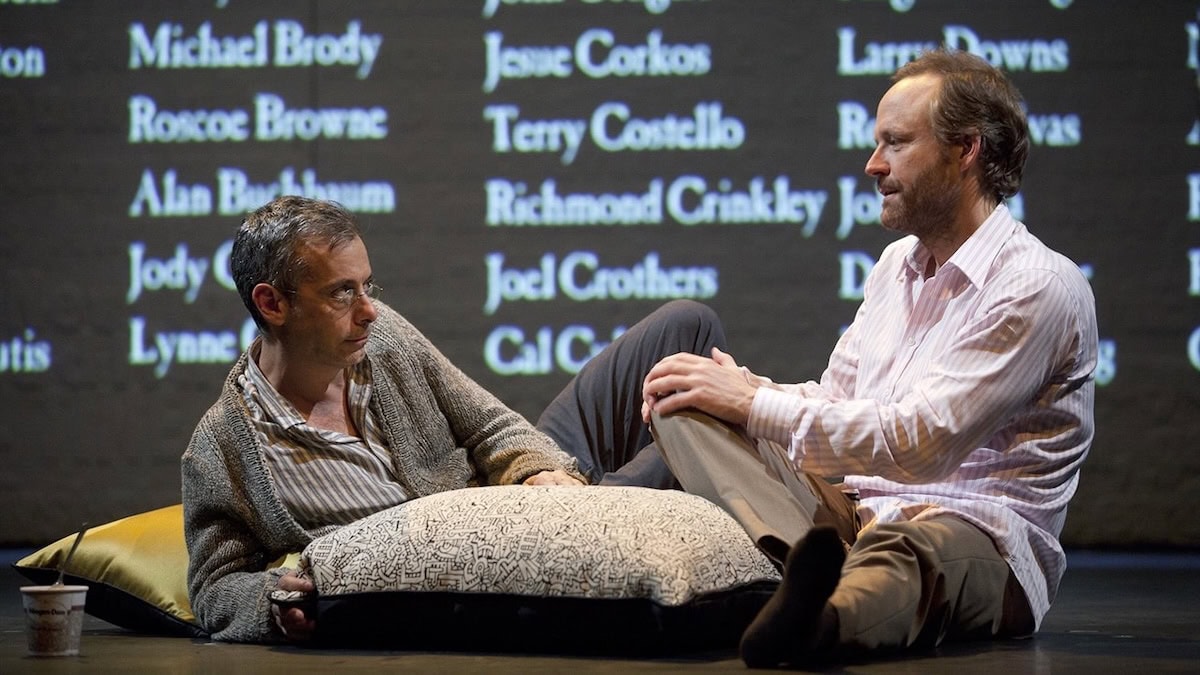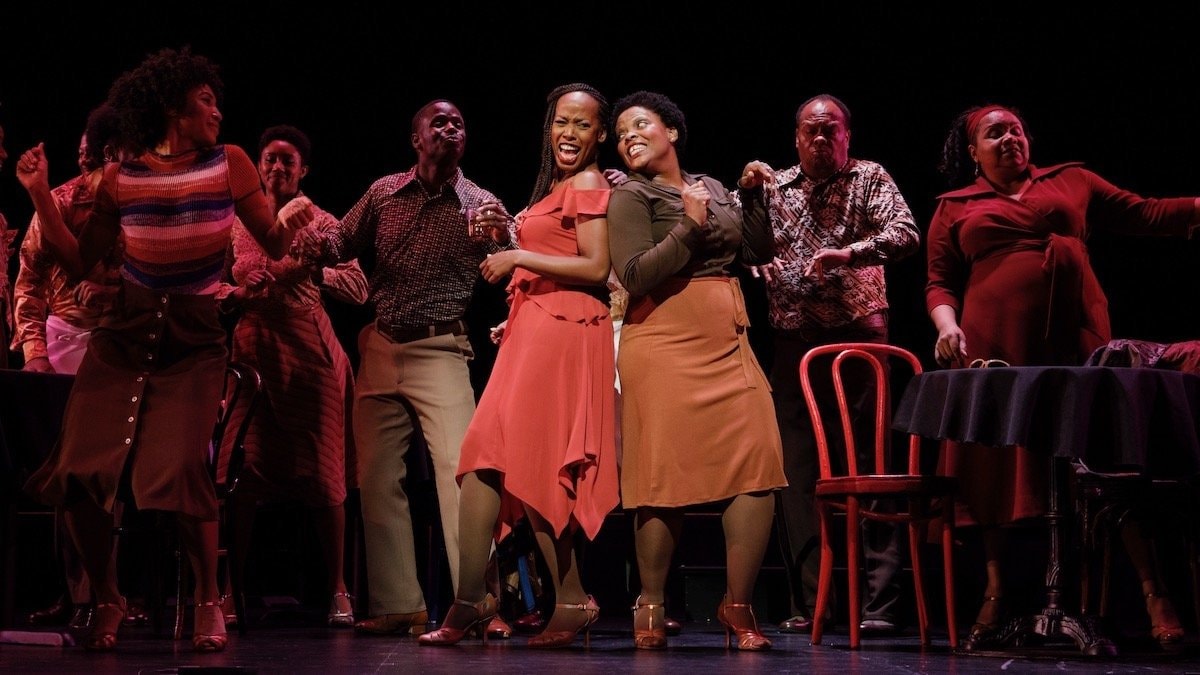
Sponsored by Concord Theatricals, DemocracyWorks is the Educational Theatre Association (EdTA)’s annual essay competition, designed to grow student advocacy for theatre education. Each year, students submit inspiring essays on a timely prompt surrounding the value of arts education, and three winners receive prizes and recognition. This year, DemocracyWorks asked high school students, “How have your theatre education experiences helped prepare you to actively participate in our democracy?”
This essay, by Lea Milanini of Wylie E. Groves High School, is the 2023 winner. (For more essays, click here.)
…
“Put the writing higher up. Make the date of 1928 bold. We need to highlight how late women could cast their first ballot!.” Right before the opening night of my school’s 2022 spring play, Blue Stockings, I arranged the last words the audience was to see. After spending two hours witnessing the four 1896 college girls’ fight for education and women’s suffrage, I wanted spectators to realize the play’s historical reality… and the fact that women only got the right to vote 32 years later, in 1928.
Gasps were heard in the theatre as the bright white date appeared on the screen at the back of the stage. My fellow classmates (and even professors) previously ignored how long women had to wait before having a say in the democracy of Western countries. At the end of the production, I was surprised by the number of students who came to me and revealed their feelings of guilt for not honoring the importance of their voting civic duty; they promised to never again take it for granted!
This theatrical performance’s impact is one illustration of the tight link between theatre and democracy. Theatre is a social art which, by promoting minds’ growth and bringing people together, benefits democracy.
I have been involved in theatre for the past decade. I have not ceased to encounter multiple positions for women in the various roles I have interpreted: the powerful Lady Macbeth, the young and determined Anne Frank, the innocent and loving Juliet, etc. As an actress, I build my characters to become them on stage. I conceive all of their thoughts, I sense all of their feelings, I embody all of their physical traits. Following Stanislavski’s System, I fully experience each role, allowing for a more believable performance… and personal enlightenment, as I come to new perceptions of humankind and the world.
Lady Macbeth conveyed to me women’s capabilities of strength and ambition in a patriarchal society; Anne Frank taught me to stay courageous and jovial in the face of adversity, like she did during the Nazis’ occupation of the Netherlands; Juliet prompted me to maintain passion and decisiveness in actions and commitments. Incorporating ladies from other regions and eras refined my personality by allowing me to reflect on my behavior and learn important life lessons. As the Assistant Director of Blue Stockings, I studied the Girton girls’ engagement for gender equality. Just like the spectators who came to see the production, I felt driven to value my right to vote and to continue advocating for female empowerment.
Theatre raises awareness to today’s critical political issues while helping us discover ourselves. As shown by my own journey, visualizing and acting so many characters with unique personalities and backgrounds opens up one’s vision of the world, develops critical thinking, and motivates position-taking. Democracy gains its vitality precisely from this process! The more education and experiences individuals come across, the better equipped they are to forge and defend opinions, thus building a democracy and actively participating in it.
In Antigone, one of the early plays of Greek theatre, Haemon declares: “A State for one man is no State at all.” In its awakening, the form of art already challenged autocracy.
It is no coincidence that the Athenian democracy came with theatre. It is after Pisistratus inaugurated an annual theatre festival in Athens that the four tribes of the city-state, previously isolated from each other, had an opportunity to share a common experience together. They slowly came to change their governing system from a tyranny to a legislature representing the “common people,” the “demo” which forms the root of the word “democracy.”
Theatre brings people together. A school production unites students, staff and surrounding neighborhoods in an auditorium. The International Thespian Society links people of different perspectives from around the globe. Acting poignant moments with partners on stage, sharing laughs in the audience during a funny scene, debating about the latest theatre article released, etc. Those experiences create connections and show us we are all similar in our human reactions. They confirm that we have what it takes to form a democracy together. Through theatre, we evolve and unite to create the greatest living democracy.
…
Lea Milanini is the 2023 winner of the EdTA’s DemocracyWorks essay competition. The runners-up are Aarush Rompally and Avishi Pandya. Read all three 2023 DemocracyWorks essays here.

Recommended Shows for Drama Festivals

The Truth Behind… The Normal Heart

